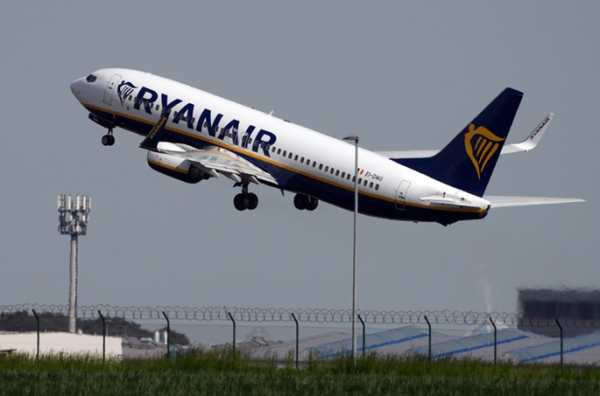Low-cost flights from Germany are getting more expensive

Air travel from German airports is becoming significantly more expensive due to a continuing shortage of flights, high taxes and fees, according to a price analysis by the German Aerospace Centre (DLR).
Prices are rising even among budget airlines, the analysis showed.
One-way tickets without luggage cost on average between about €67 ($78) and about €130, DLR said after analyzing the prices of the four most important providers of low-cost flights from Germany.
A year ago, the range was between €66 and €110.
Ryanair no longer the cheapest provider
Ryanair was the cheapest provider at that time, but the Irish airline's average ticket price has now risen from €66 to around €80 within a year.
Lufthansa subsidiary Eurowings meanwhile remains the most expensive provider as it charges an average of €130 for a one-way flight, up from €110 last year
EasyJet remains in the middle of the pack, with prices rising slightly from €84 to €86, while Wizz Air, specializing in flights to Eastern Europe, is the cheapest airline with fares dropping from €94 to €67.
DLR analyzed numerous European routes as of March 11, examining four advance booking periods from one day to three months.
Last-minute tickets were generally the most expensive, ranging from €119 (Wizz Air) to €169 (Eurowings), while booking three months in advance lowered average prices to between €46 (Ryanair) and €90 (Eurowings).
The highest one-way fare recorded was €499.99 for a Eurowings flight from Düsseldorf to Stockholm booked one week ahead.
German air traffic lags compared to the rest of Europe
More than five years after the start of the Covid-19 pandemic, German air traffic remains below pre-crisis levels.
The German Aviation Association (BDL) reports seat capacity in Germany is at 93% of 2019 figures through November, while other European countries have surpassed pre-pandemic capacity by around 10%.
The lag is largely due to low-cost carriers avoiding Germany's more expensive airports. Budget airlines operate at just 85% of their pre-crisis capacity in Germany, compared to 133% elsewhere in Europe. The BDL is calling for the removal of the air traffic tax and federal support for airport security costs.
Ryanair, Europe's largest low-cost carrier, has expanded strongly across the continent but has cut back services at German airports like Hamburg and Berlin.
Chief executive Eddie Wilson said higher profits elsewhere prevent expanding in Germany and he has offered to double Ryanair's German fleet to 60 planes if the government cuts costs, including taxes and fees.
- Germany
- Low-cost flights
Source: www.dailyfinland.fi
